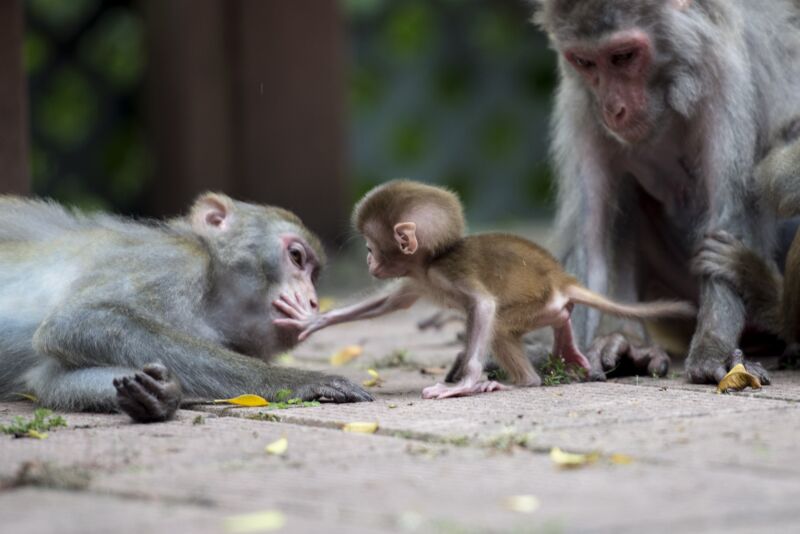A 37-year-old man is fighting for his life in an intensive care unit in Hong Kong after being wounded by monkeys during a recent park visit and contracting a rare and deadly virus spread by primates.
The man, who was previously in good health, was wounded by wild macaque monkeys during a visit to Kam Shan Country Park in late February, according to local health officials. The park is well known for its conservation of wild macaques and features an area that locals call "Monkey Hill" and describe as a macaque kingdom.
On March 21, he was admitted to the hospital with a fever and "decreased conscious level," health officials reported. As of Wednesday, April 3, he was in the ICU listed in critical condition. Officials reported the man's case Wednesday after testing of his cerebrospinal fluid revealed the presence of B virus.
B virus, also known as herpes B virus or herpesvirus simiae, is a common infection in macaques, usually causing asymptomatic or mild disease. Infections in humans are extremely rare, but when they occur, they usually come from macaque encounters and are often severe and deadly. The infection can start out a lot like the flu, but the virus can move to the brain and spinal cord, causing brain damage, nerve damage, and death. The US Centers for Disease Control and Prevention estimates that about 70 percent of untreated infections in humans are fatal.
Despite the presence of macaques around Hong Kong, the man's case is the first known B virus infection documented there. The virus was discovered in 1932, and since then only 50 human infections have been documented as of 2019, the CDC reports. Of those 50 people infected, 21 died. The agency notes that in one case, from 1997, a researcher was infected and died after bodily fluid from an infected monkey splashed into her eye. Still, contracting the virus is rare, even among people exposed to macaques. The CDC reports that there are hundreds of reports of macaque bites and scratches each year in US animal facilities, and infections remain very uncommon.
However low the risk, health officials recommend keeping your distance from wild monkeys and not feeding or touching them. If you are bitten or scratched, wash the wound immediately and seek medical attention.



3175x175(CURRENT).thumb.jpg.b05acc060982b36f5891ba728e6d953c.jpg)
Recommended Comments
There are no comments to display.
Join the conversation
You can post now and register later. If you have an account, sign in now to post with your account.
Note: Your post will require moderator approval before it will be visible.